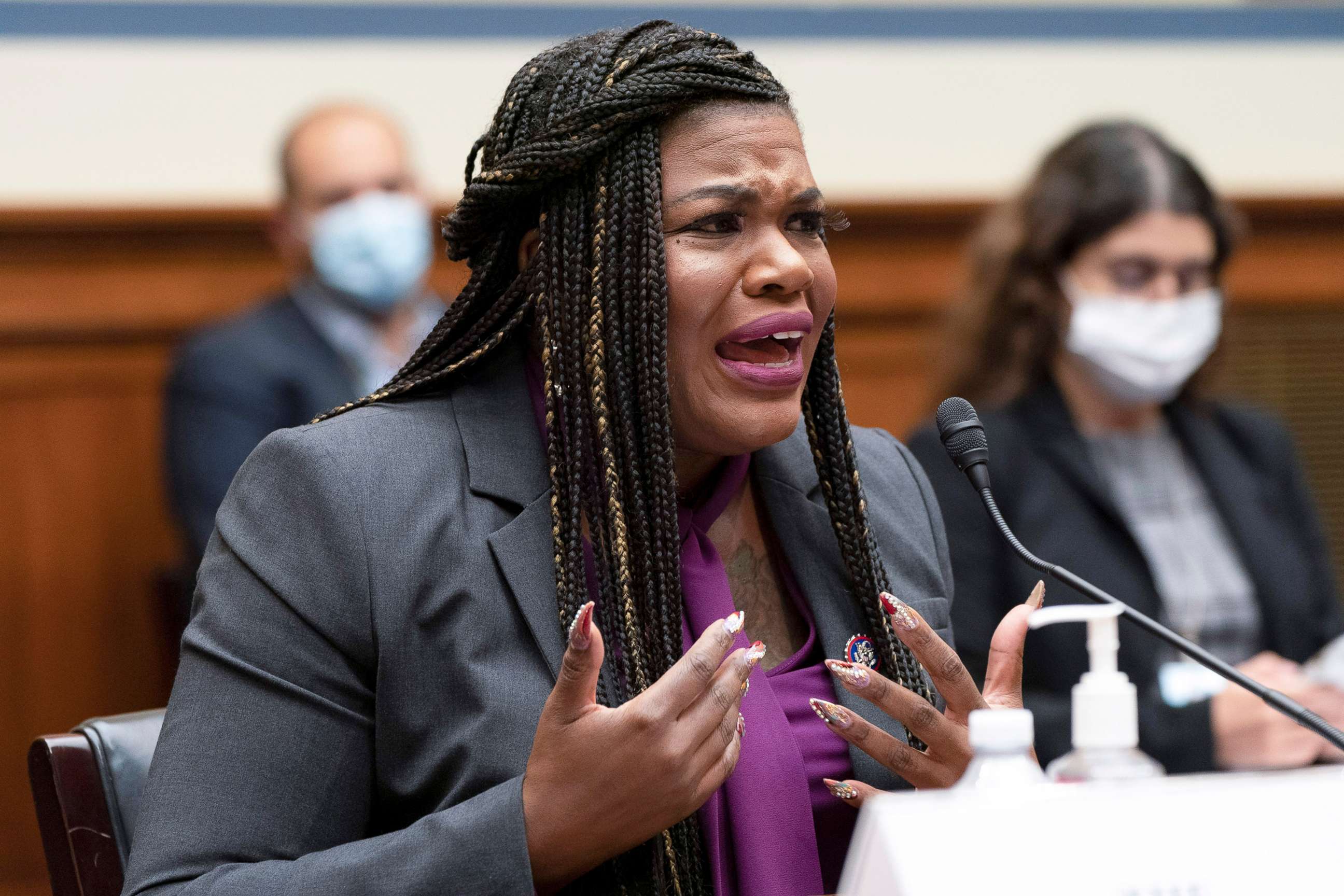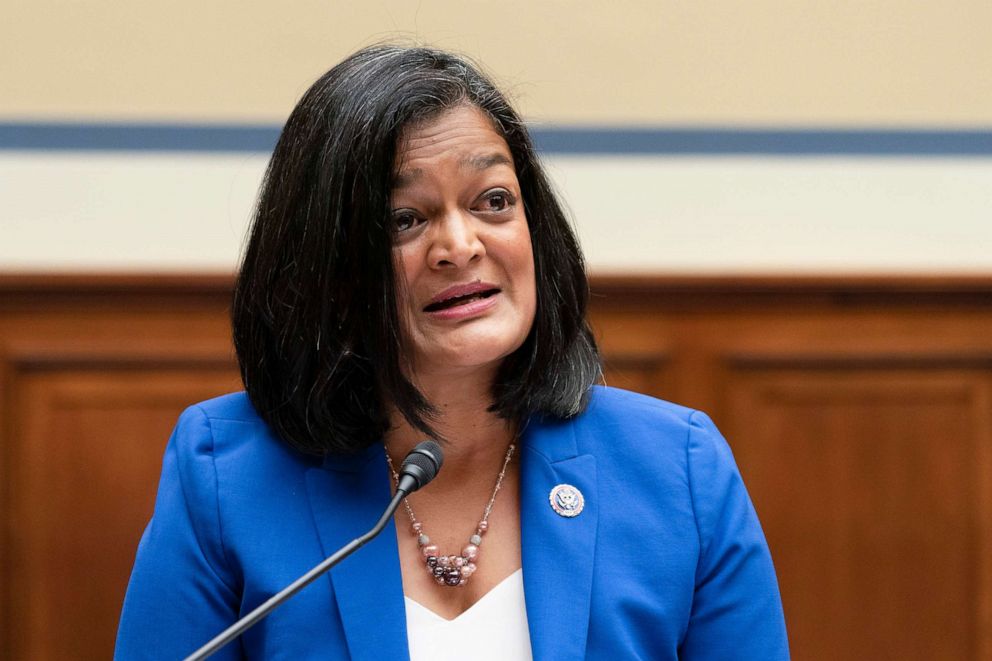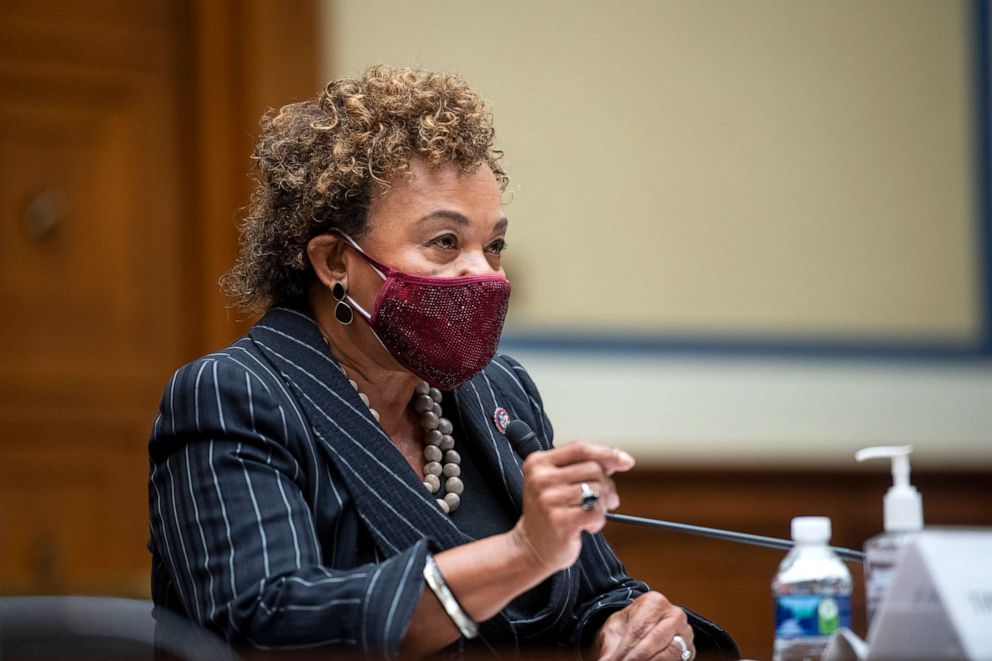Lawmakers give intimate testimony about their own abortions
Gloria Steinem also testified at the emotional and at-times heated hearing.
After she was raped on a church trip in Jackson, Mississippi, and became pregnant in the summer of 1994, Rep. Cori Bush, D-Mo., got an abortion at the age of 18.
Her assault and the resulting pregnancy the summer following her high school graduation left her feeling ashamed, and she feared what her father would say or do. She remembers the Saturday she went to a clinic for an abortion and said she was "talked to like trash" in a way that made her blame herself more.
That was her testimony Thursday in an emotional and at-times heated hearing before the House Oversight Committee on abortion rights at which lawmakers spoke out about their own abortions and Democrats and Republicans fiercely debated the issue.
"To all the Black women and girls who have had abortions and will have abortions, we have nothing to be ashamed of," said Bush, who had previewed her testimony in Vanity Fair. "We live in a society that has failed to legislate love and justice for us, so we deserve better, we demand better, we are worthy of better."

Rep. Pramila Jayapal, D-Wash, testified that after a high-risk pregnancy, she was unprepared to have another child. But, even after taking birth control "religiously," she became pregnant. After consulting with her husband and doctors, she chose to have an abortion.
Until two years ago, she never talked about it -- even with her mother, Jayapal said.
"Some of it was because as an immigrant from a culture that deeply values children, and in an American society that still stigmatizes abortion, suicide and mental health needs, I felt shame that I never should have felt," she explained.

In the 1960s, at age 16, Rep. Barbara Lee, D-Calif., was "confused, afraid and unsure" when she first realized she had missed her period. It was before abortion was legalized but, with the permission of her mother, she crossed the border with her mother’s friend in El Paso, Texas, to Mexico, where she was able to get the procedure. She was one of the "lucky ones," she said; her back-alley abortion didn’t kill her, but she said women from her generation often died in similar situations.

The intimate testimony, which had been previewed on MSNBC, comes after the U.S. Supreme Court allowed a Texas abortion bill to go into effect at the beginning of September. The Texas law bans nearly all abortions after six weeks of pregnancy, specifically once the rhythmic contracting of fetal cardiac tissue can be detected. It prohibits the state from enforcing the ban but allows anyone to sue a person they believe is providing an abortion or assisting someone in getting an abortion after six weeks.
Several lawmakers have suggested they would look into similar laws in their own states, while existing similar bills have gotten renewed attention.
Adding to the timeliness of the hearing are the upcoming arguments in Dobbs v. Jackson Women’s Health Organization that the Supreme Court is set to hear in December. The state of Mississippi is asking the justices to overturn nearly 50 years of precedent, allowing each state to decide abortion policy for itself.
Like Lee, activist Gloria Steinem said in her testimony that she participated in the hearing because she remembers the state of affairs before Roe v. Wade.
The feminist icon called the new Texas law "not only a local issue or a women's issue" but "a step against democracy."
"Remember when Hitler was elected -- and he was elected -- his very first official act was to padlock the family planning clinics and declare abortion a crime against the state," Steinem said.
The hearing also included anti-abortion voices, including that of Rep. Kat Cammack, R-Fla., who testified that her single mother, who had a debilitating stroke while pregnant with her sibling, chose -- against medical advice -- not to abort her 33 years ago. Cammack said her colleagues could have made the same decision.
"You can imagine the fear, the disappointment, the struggle, the internal anguish that my mother felt as doctors told her that she needed to abort her child. You can imagine the pain that she felt when her own family told her that she needed to abort her child," Cammack said. "But because of her strength, she chose life."
Texas OB-GYNs and Texas activists also testified Thursday, including Dr. Ghazaleh Moayedi, who is pro-choice, and Dr. Ingrid Skop, who spoke out against abortion.
Moayedi, who has provided abortions in both Hawaii and Texas, said fellow physicians are confused and worried about Texas' new law.
"It has made it extremely dangerous to be pregnant in Texas, where our maternal morbidity and mortality rate is already unconscionably high, especially for Black women and pregnant people of color," she said. "Texas deserves better."
But Skop said she had delivered over 5,000 babies in the last 29 years and that even those who were not "intentionally conceived" had a large impact on those around them.
"Abortion is not a choice to be celebrated, but a decision to be grieved," she said.
House Oversight Committee Chair Carolyn Maloney and other Democrats at the hearing pushed to see the Women’s Health Protection Act, which would federally protect the right to abortion, passed in the Senate.
Maloney also said she wanted to see passage of the Equal Access to Abortion Coverage in Health Insurance Act -- or EACH Woman Act -- which would eradicate the Hyde Amendment, a 40-year-old provision that has banned federal funding for most abortions.
"It is completely backwards that a majority of Americans support preserving abortion rights, while at the same time, more and more states are working to block them," Maloney said.
ABC News' Devin Dwyer contributed to this report.




